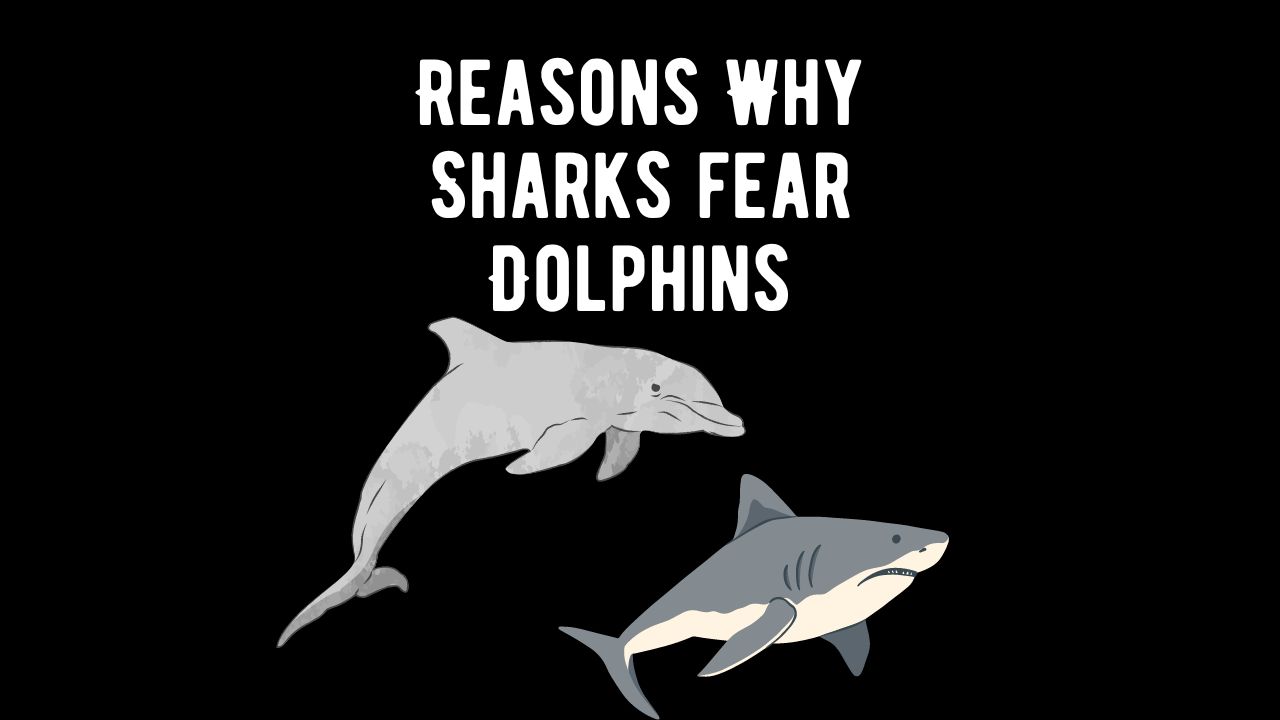
Sharks and dolphins, two iconic marine creatures, share the vast ocean waters, each commanding its space in the underwater realm. However, a fascinating twist in their dynamic reveals that sharks, often seen as the ocean’s apex predators, have a surprising fear – dolphins.
The idea that sharks are afraid of dolphins is a common perception, often fueled by anecdotal stories and popular media. However, it’s crucial to clarify that sharks and dolphins have complex interactions, and the concept of fear may not be entirely accurate. In this article, we will explore the logical reasons behind this unexpected behavior, shedding light on the intelligence, strategies, and evolutionary adaptations that give dolphins an upper hand in encounters with sharks.
1. Mobbing Behavior:
- Dolphins are known to exhibit mobbing behavior towards sharks. When a shark is in the vicinity, dolphins may form a group, swim around the shark, and occasionally deliver headbutts. This behavior can be seen as a form of defense or a way to discourage the shark from entering their territory.
2. Agile Movements:
- Dolphins are highly agile swimmers, capable of quick and unpredictable movements. Their ability to swim rapidly and change direction swiftly might make them challenging for sharks to catch, especially in open water.
3. Predatory Defense:
- Dolphins are considered predators, and some species have been observed defending themselves or their young from potential threats. When faced with a shark, dolphins may engage in defensive behavior, showcasing their agility and intelligence to avoid becoming prey.
4. Echolocation and Communication:
- One of the key factors contributing to dolphins’ dominance over sharks is their use of echolocation. Dolphins emit high-frequency sounds and interpret the echoes, allowing them to navigate and locate prey with remarkable precision. In contrast, sharks depend on other senses like smell and electroreception, making them susceptible to dolphins’ strategic maneuvers.
5. Team Work and Social Structure:
- Dolphins often travel in pods, exhibiting a strong social structure. The collective nature of dolphins can be intimidating to a solitary shark. The pod may work together to deter the shark from the area or to protect a vulnerable member of their group. Dolphins are highly social creatures, forming tight-knit pods that collaborate in various activities, including defense against potential threats. Sharks, on the other hand, often operate as solitary hunters. This social contrast places dolphins in a favorable position when facing sharks, as their coordinated efforts and communication set them apart.
6. Competing for Resources:
- Sharks and dolphins share overlapping habitats and may compete for similar prey. While direct competition might not always lead to aggression, the presence of dolphins could signal an area with active hunting or abundant food resources, potentially deterring sharks.
7. Learning from Experience:
- Sharks are intelligent predators that can learn from experience. If a shark encounters a pod of dolphins that exhibits aggressive or defensive behavior, the shark may associate dolphins with potential challenges or threats, influencing their future interactions.
8. Diverse Interactions:
- Interactions between sharks and dolphins can vary depending on species, location, and environmental factors. While some observations suggest avoidance or defensive behavior, there are instances where sharks and dolphins coexist peacefully or even engage in cooperative hunting.
9. Instinctual Responses:
- Both sharks and dolphins have evolved over millions of years, developing instinctual responses to various stimuli. The interactions observed between them may be influenced by these deep-seated instincts, shaped by the pressures of their respective ecological roles.
10. Unpredictability of Nature:
- Nature is inherently dynamic and unpredictable. While patterns of behavior can be observed, individual interactions between sharks and dolphins are influenced by numerous factors, making it challenging to generalize their relationship.
Dolphin Pods vs. Lone Sharks
The strength of numbers becomes evident when comparing dolphin pods to lone sharks. While dolphins operate as a coordinated team, sharks, when isolated, face challenges in fending off the collective efforts of a pod. This power dynamic underscores the advantage that dolphins hold in specific scenarios.
Evolutionary Adaptations
The evolutionary paths of dolphins and sharks have shaped their behaviors significantly. Dolphins have evolved to be social, intelligent, and agile, while sharks have honed their solitary hunting skills. Exploring these adaptations provides insights into the reasons behind the power dynamic between these two marine species.
Conclusion
In summary, the interactions between sharks and dolphins are multifaceted and influenced by a combination of factors, including defensive behavior, competition for resources, and the natural instincts of both species. While it may be tempting to anthropomorphize these interactions as sharks being “afraid” of dolphins, it’s more accurate to view them as complex responses shaped by the evolutionary history and ecological roles of these marine creatures.
Related Frequently Asked Questions
- Are dolphins really smarter than sharks?
- Yes, dolphins are widely recognized as highly intelligent creatures, surpassing sharks in cognitive abilities.
- Do sharks always fear dolphins?
- While not a universal rule, instances of sharks showing fear or caution in the presence of dolphins have been documented.
- Can sharks and dolphins coexist peacefully?
- Yes, sharks and dolphins can coexist peacefully, but their interactions are influenced by various factors such as species, location, and individual behavior.
- Why are sharks often portrayed as fearless predators?
- Media portrayal often exaggerates the fearlessness of sharks, contributing to misconceptions about their behavior.
- How can marine conservation efforts benefit both sharks and dolphins?
- Conservation initiatives focused on preserving marine habitats and regulating human impact contribute to the well-being of both sharks and dolphins.






